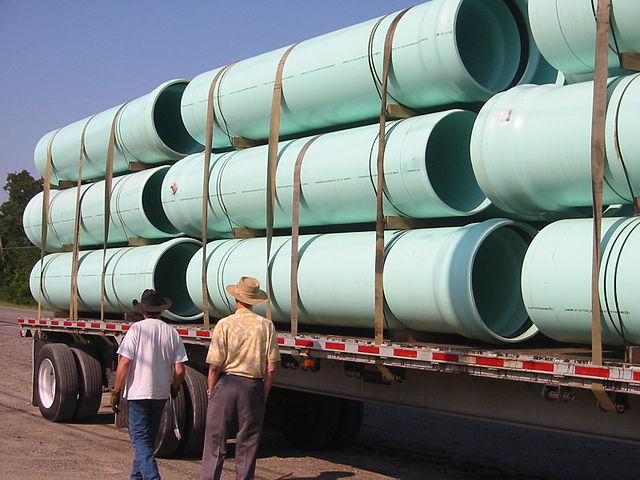Industry News
Entries for Consumption Trigger AD/CVD Liability, Even for Goods to be Re-exported
TweetSep. 6, 2022
By:
Marvin E. McPherson
Shippers know that sometimes logistics delays happen. However, one importer was reminded to consider the ramifications of adapting to a shipping delay by making an entry for consumption in the United States. Customs published ruling HQ H291184 response to an application for further review of a protest challenging the denial of reliquidating imported merchandise without antidumping and countervailing duties (AD/CVD).

In that ruling, Pluspetrol, which intended to merely transit the United States with imported pipes for a project in Peru, incurred shipping delay from Houston due to a bankrupt transporter. With the goods temporarily stuck in Houston, Pluspetrol decided to make a consumption entry into the United States while it sorted out the logistics issue. The pipes were not intended to be used in the United States. However, to Pluspetrol’s surprise, once the items were entered CBP demanded AD/CVD duties on the pipes, since they were subject to an AD/CVD case.
Pluspeterol argued, first, that imported merchandise was not subject to AD/CVD if it is not used or offered for sale in the United States citing Torrington Co. v U.S. 82 F.3d 1039 (Fed. Cir. 1996). Second, that the collection of these AD/CVD duties violated the Export Clause, by imposing AD/CVD on an export. Third, Pluspetrol originally sought to enter the merchandise into a bonded warehouse or admission into an FTZ and the entry for consumption was due to a mistake.
CBP rejected Pluspetrol’s argument that goods must be used or offered for sale within the US as a condition to being subject to AD/CVD, but rather held that goods that are determined to be subject to an AD/CVD order, duties and liability for their payment accrue upon importation. Importation of merchandise is defined as the moment merchandise arrives within customs port with the intent then and there to unlade, or at the time of arrival within the customs territory if the goods arrive by other means. Thus, Pluspetrol’s liability for payment was unaffected by whether the pipes were ultimately exported, or ever used or offered for sale in the United States.
Furthermore, CBP rejected Pluspetrol’s argument that collection of these AD/CVD duties violated the Export Clause. CBP held that the imposition of AD/CVD on the pipes did not violate the Export Clause because duties were imposed by reason of the pipes’ importation and entry for consumption. Pluspetrol’s assertion that the pipes were always intended to be exported, even at the moment of importation, is therefore not relevant to CBP’s imposition of AD/CVD.
Lastly, CBP found that there is no legal basis for converting a consumption entry into a bonded entry in order to avoid the application of AD/CVD. The company entered the items for consumption thus liability for duties, both regular and additional, attaching on importation, constitutes a personal debt due from the importer to the United States. CBP saw no relevance in the fact that the merchandise was to be exported or entered into bond after the fact.
The triggering event for the imposition of AD/CVD is the importation of merchandise. As seen in this case, the entry for consumption was extremely costly, thus the importer may have reduced their liability by entering the merchandise by other means. If your company is experiencing long delays caused by transportation issues do not hesitate to contact any attorney at Barnes, Richardson & Colburn, LLP.
